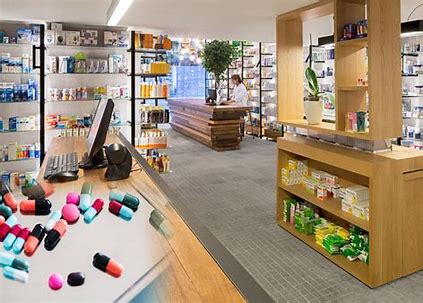The Association of Community Pharmacists of Nigeria (ACPN) has strongly rejected any plan to place the Pharmacy Council of Nigeria (PCN) under a new central health regulatory body.
They warned that such a move would undo years of progress in regulating pharmacy practice and harm Nigeria’s improvements in drug safety and control.
Speaking ahead of their 44th Annual International Conference in Awka, Anambra State (July 22–27), ACPN leaders said they are very concerned about a proposed law in the National Assembly — the National Health Facilities Regulatory Authority (NHFRA) Bill.
They believe the bill’s plan to combine PCN with other health bodies would be harmful, especially since PCN was given more responsibilities by a law passed in 2022.
ACPN’s National Secretary, Omokhafe Ashore, said this merger plan is a step backward and would hurt the profession. He urged lawmakers not to destroy a system that’s working well and has been praised internationally.
Ashore said the PCN has grown a lot and now regulates pharmacy practice across Nigeria, with offices in every region. He said this structure took years to build, and its staff are specially trained for pharmacy regulation.
He added that PCN is now one of the top pharmacy regulators in Africa.
Because of PCN’s strong performance, the World Health Organization ranked Nigeria’s pharmacy system at Maturity Level 3 — a high rating also given to NAFDAC. This puts Nigeria among a few African countries with strong drug regulation.
Ashore warned that merging PCN with other regulators would create a weak system that wouldn’t meet the unique needs of pharmacy practice.
He said this could threaten public safety and lead to problems with drug quality.
Ashore pointed out that in countries like the UK, USA, Canada, South Africa, Ghana, and Kenya, pharmacy is regulated separately by pharmacists — which is considered the best practice worldwide.
He said pharmacy has its own rules, training, and way of operating that require its own dedicated regulator.
ACPN National Chairman, Pharm. Ambrose Ezeh, also criticized the bill. He said it’s sad that while Nigeria is making progress in making its own drugs, the government is trying to weaken the systems that made that progress possible.
He explained that Nigeria’s pharmacy regulation has a long history — starting from 1878 — and no other profession in the country has such a strong regulatory background.
Ezeh said the NHFRA bill is part of a trend to reduce the independence of non-doctor health professionals.
He warned that if this continues, pharmacists might resist future reforms they see as unfair or controlling.
Ezeh made it clear that pharmacists support reforms, but they must be fair and respect the unique nature of each profession.
He said PCN is the only body with the skills to handle Nigeria’s complex pharmacy system, including drug distribution, inspections, and staff licensing. Breaking up this system would be risky.
Ezeh also said the current version of the bill doesn’t explain how the rights of individual professional regulators like PCN would be protected.
He urged lawmakers to involve professional groups like the Pharmaceutical Society of Nigeria in discussions before finalizing the bill.
Ezeh called on President Bola Tinubu to lead an open and inclusive health reform process to avoid what he called a coming disaster.
He said over 80% of Nigeria’s health workers are not doctors, and any policy that ignores their input is likely to fail.
Ezeh praised Nigerian drug manufacturers for pushing ahead with local production, even with many challenges.
He said despite the problem of fake drugs, the local pharmaceutical industry is growing fast, with big investments and innovation.
He highlighted that over 150 pharmaceutical companies now operate in Nigeria, and five meet WHO’s high standards for manufacturing.
Ezeh noted that Nigerian investors are spending millions to build plants that produce key drug ingredients — helping Nigeria become a leading pharma hub in Africa.
However, he asked the government to help by making it easier to get good-quality equipment and ingredients, which would boost jobs and the economy.
He said producing more medicine locally is key to meeting national health and drug policies.
Ezeh criticized the Ministry of Health for not properly involving pharmacists in important decisions, like the recent MEDIPOOL policy.
He stressed the need for the Ministry to include pharmacy professionals in reforms and to act quickly on the National Drug Distribution Guidelines from 2015. He also called for stronger laws to punish those selling fake drugs.


